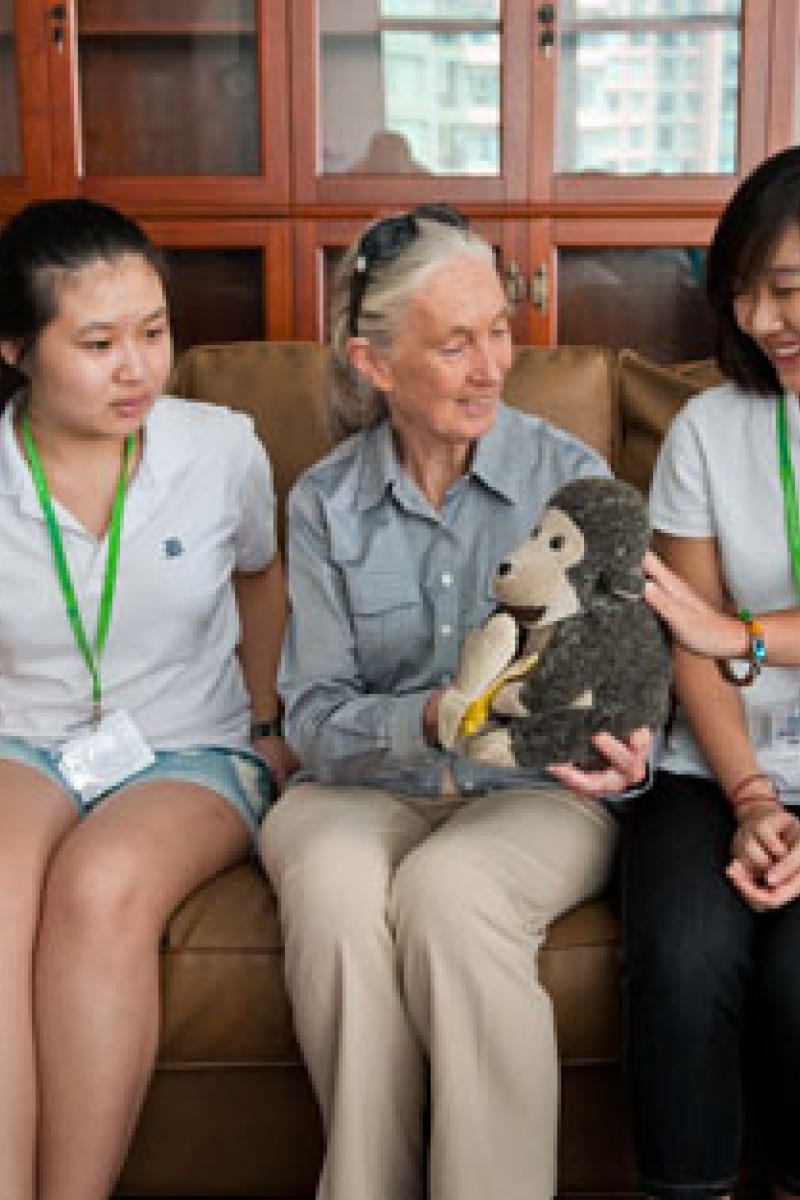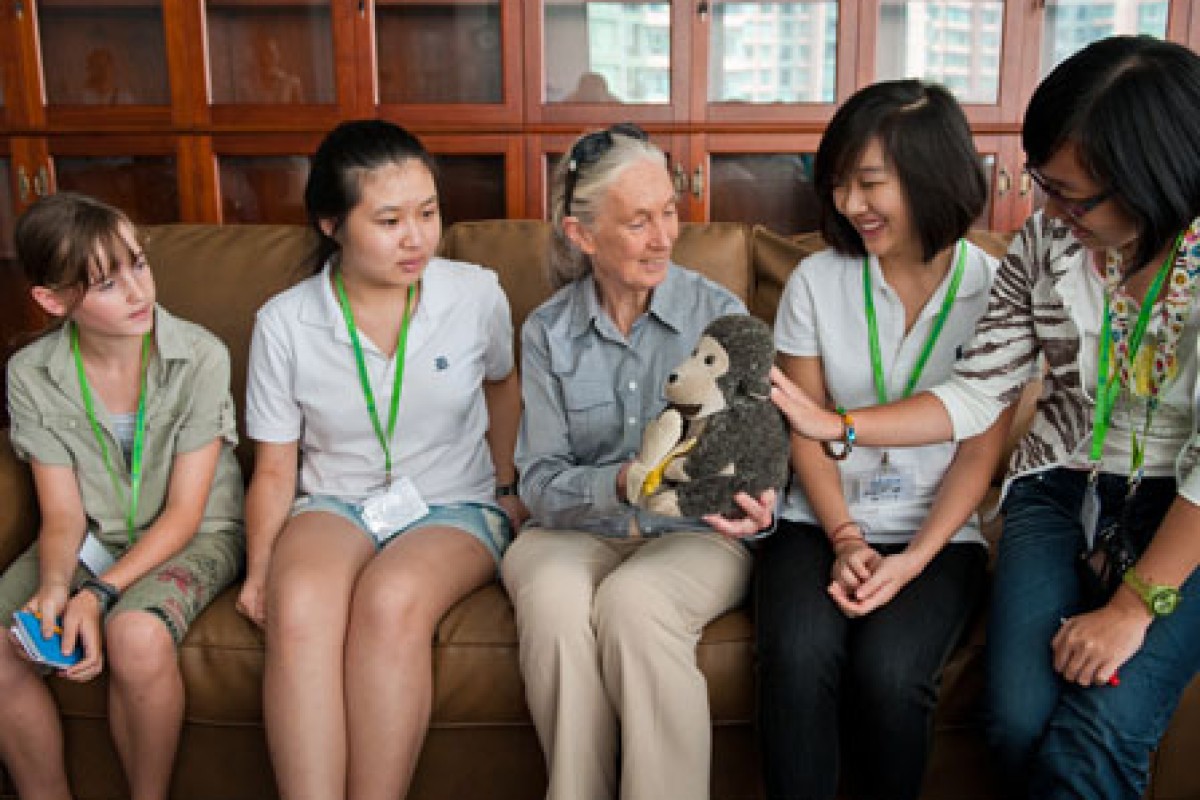
For Jane Goodall, nature deserves as much attention as human-related issues
 Jane Goodall (center) with YP junior reporters (from left) Tilly Fidler, Pearl Chan, Hetty Lee and Hollie Chung
Jane Goodall (center) with YP junior reporters (from left) Tilly Fidler, Pearl Chan, Hetty Lee and Hollie ChungMost of us tend to give up easily, but Goodall braved all: English social etiquette, laws of the chimpanzee tribes, African wars, critics and worldwide apathy.
She stands today as a beacon of hope. This is probably the strongest impression the 76-year-old UN Messenger of Peace had on the Young Post junior reporters. The four lucky readers conducted a 30-minute interview with Goodall during the Roots & Shoots Asia Pacific Youth Summit last month.
Roots & Shoots is a programme which gets young people involved in their communities. They 'plant seeds of global peace', says Goodall. She launched the programme in 1991 after realising that many young people didn't have the support they needed to make a difference.
'The more I travelled, the more I met young people your age [12-18], who seemed to have not much hope for the future. So I began talking to them and it led to the Roots & Shoots programme.' But Goodall hasn't always been an activist. She used to be happy simply studying chimpanzees at the Gombe National Park in Tanzania. 'I lived in a tent near the chimps, waking up at sunrise and taking notes. It was fabulous.'
The studies she's carried out since 1960 revealed disturbing similarities between chimps and humans. She found that chimps can use tools. 'It was very exciting because, back then, it was still believed that only humans could make tools.'
Later she was stunned to discover that chimpanzees could be brutal and aggressive. 'Now we know they're just as nasty, and sadly that makes them look even more like us.'
In fact, she says, chimps are so similar to us, their DNA differs from humans by only 1 per cent. We can catch the same diseases and get a blood transfusion from a chimp if the blood groups match, she says.
Goodall was planning to continue this wonderful life 'out with the chimps, writing books, analysing the data', but everything changed after she realised at a conference that forests and chimpanzees were vanishing fast.
'I left this four-day conference as an activist and started travelling around Africa to talk about chimp conservation.'
She knew this could not happen as long as there was rampant poverty. So she set up Tacare, a programme which helps improve the lives of villagers around Gombe National Park.
For Goodall, forest and wildlife conservation deserves as much attention as human-related issues. 'It's very arrogant of us to think that humans are so much more important than anything else.'
When asked by a junior reporter what she thought of the way livestock are treated today, Goodall said she was shocked by the farming methods. She reminded them of the conditions in which these animals are farmed and killed, and how unhealthy some of the methods used are for humans. For example, hormones and antibiotics are used to speed up growth and keep the animals alive. 'If we want to eat meat, we should make sure it's from animals that have lived in a pretty decent way. That means it will cost a lot more, but then we will value it,' she says.
Goodall offered a mixed message of urgency and hope. 'We are the most intellectual beings walking this planet, but we are destroying it. We lost wisdom. There is a disconnection between our clever heads and our hearts ... But every individual can make a difference every single day.'
To join or read more about Roots & Shoots Hong Kong, visit www.rootsandshoots. org.hk
Read the full transcript of the interview and see more pictures here
Read the junior reporters' reports of the Roots & Shoots summit and check out photos of the three-day event here